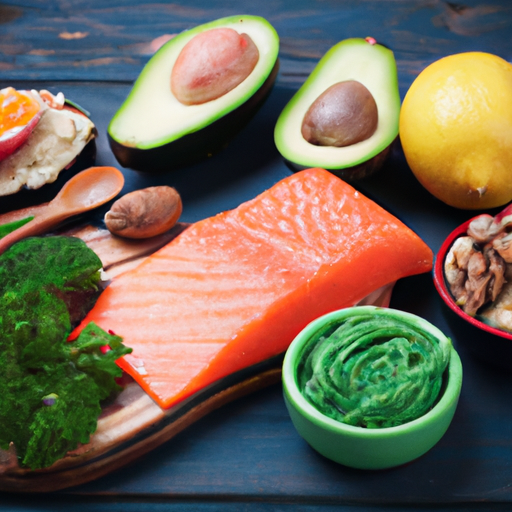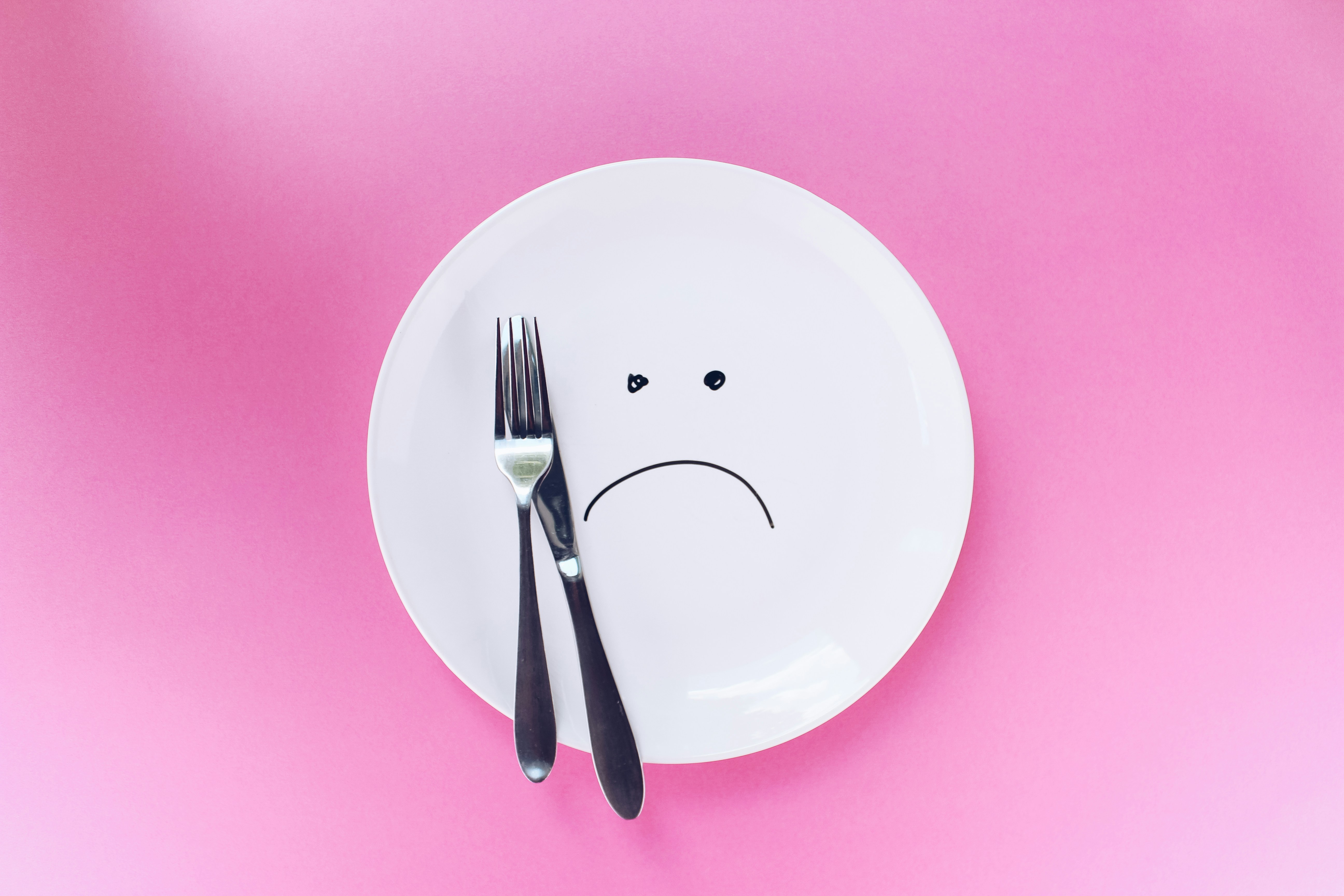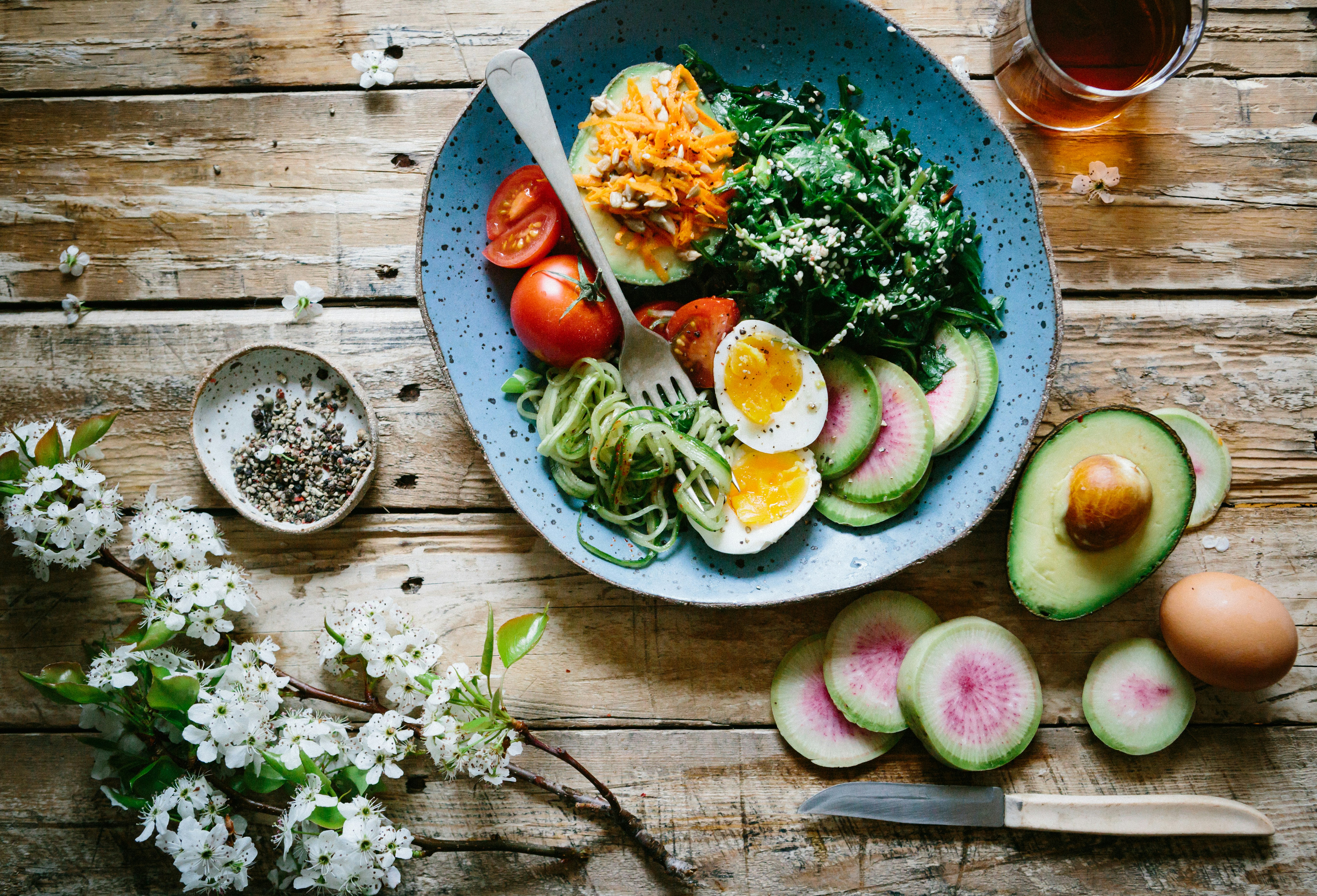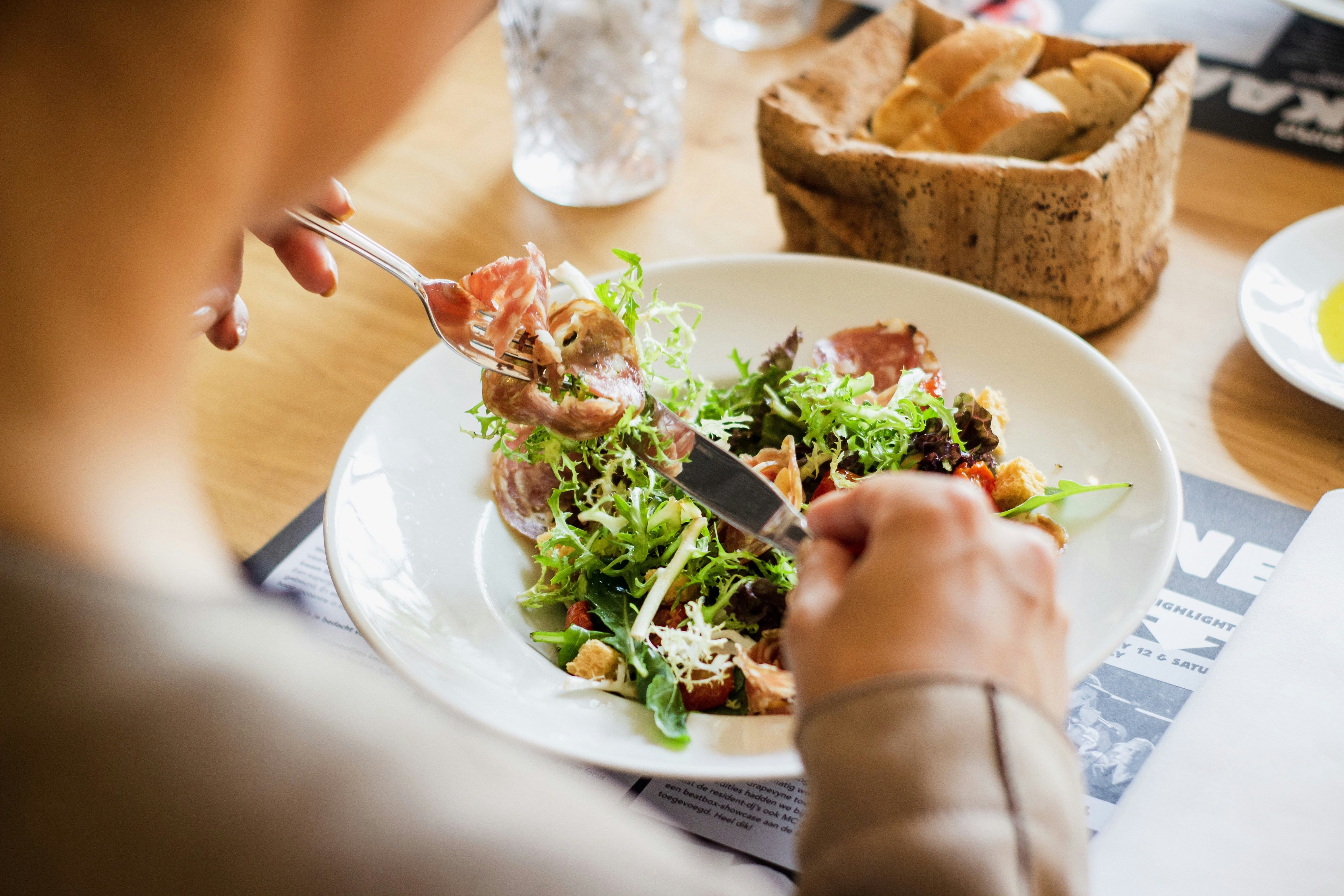In this article, you will learn whether vegetarians or vegans can successfully adopt a Keto diet. Many people may believe that the high-fat, low-carb nature of the Keto diet would be difficult for vegetarians or vegans to follow, given their dietary restrictions. However, it is indeed possible for them to adhere to a Keto lifestyle with some adjustments and careful planning.
For vegetarians, incorporating plant-based protein sources such as tofu, tempeh, and seitan can help meet their protein needs while maintaining a low-carb intake. Additionally, including plenty of low-carb vegetables, healthy fats from sources like avocados, nuts, and seeds, and utilizing plant-based oils like coconut or olive oil can provide the necessary nutritional balance. Vegans, on the other hand, can rely on plant-based protein sources like legumes, quinoa, and hemp seeds to meet their protein requirements while still adhering to the low-carb aspect of the Keto diet. Incorporating healthy fats from sources like coconut milk, nuts, and nut butters can also help them maintain the high-fat component of the diet. However, it is important for both vegetarians and vegans to carefully monitor their intake of carbs from sources like fruits, grains, and starchy vegetables to ensure they remain within the desired Keto range. With strategic planning and a focus on nutrient-dense, plant-based foods, vegetarians and vegans can successfully follow a Keto diet and achieve their health and wellness goals.
Myths about vegetarian and vegan diets
Common misconceptions about vegetarian and vegan diets
There are several common misconceptions about vegetarian and vegan diets. One of the most prevalent is the belief that these diets are lacking in essential nutrients. Some people assume that without consuming animal products, vegetarians and vegans may not be able to meet their nutritional needs. Another misconception is that vegetarian and vegan diets are high in carbohydrates, making them incompatible with a low-carb, high-fat diet like Keto.
The belief that a vegetarian or vegan diet lacks essential nutrients
Contrary to popular belief, a well-planned vegetarian or vegan diet can provide all the essential nutrients the body needs. With proper planning and attention to food choices, vegetarians and vegans can meet their protein, iron, calcium, and other nutrient needs without relying on animal products. Plant-based sources of protein such as beans, lentils, tofu, tempeh, and seitan can provide adequate protein intake. Additionally, consuming a variety of fruits, vegetables, whole grains, nuts, and seeds can ensure a well-rounded intake of essential vitamins and minerals.
Exploring the misconception that vegetarian and vegan diets are high in carbs
While it is true that some vegetarian and vegan foods are high in carbohydrates, such as grains, legumes, and starchy vegetables, it is also possible to follow a low-carb, high-fat diet as a vegetarian or vegan. By focusing on non-starchy vegetables, low-carb fruits, plant-based fats, and protein-rich foods, individuals can modify their vegetarian or vegan diets to be compatible with a Keto approach. It is all about making informed choices and finding the right balance of macronutrients.
Understanding the Keto diet
What is the Keto diet?
The Keto diet, short for ketogenic diet, is a low-carbohydrate, high-fat diet that has gained popularity in recent years. It involves drastically reducing carbohydrate intake and replacing it with fats. This reduction in carbohydrates shifts the body into a state called ketosis, where it relies primarily on fat for fuel instead of carbohydrates. By depleting the body’s glycogen stores, the Keto diet forces it to burn fat for energy, resulting in weight loss and other potential health benefits.
How does the Keto diet work?
When you follow a Keto diet, your carbohydrate intake is limited to around 20-50 grams per day, mainly from non-starchy vegetables. This restriction in carbs prompts your body to enter a metabolic state called ketosis. In ketosis, your liver produces ketones from stored fat, which serve as an alternative fuel source for the brain and body. By relying on fat for energy, your body is more efficiently burning stored fat, which can lead to weight loss.
Benefits and risks of the Keto diet
The Keto diet has been associated with several potential benefits. One of the primary advantages is weight loss, as the diet encourages the body to burn fat effectively. Additionally, some studies suggest that the Keto diet may help improve insulin sensitivity, reduce inflammation, and enhance mental clarity. However, it is worth noting that the long-term effects and risks of the Keto diet are still being researched. Some potential risks include nutrient deficiencies, constipation, and an increased risk of certain health conditions if the diet is not carefully planned and balanced.
Are You a Ketosis Master? Take Our Quiz!
Challenges for vegetarian and vegan Keto followers
Can vegetarians or vegans achieve ketosis?
Achieving ketosis as a vegetarian or vegan can be challenging but not impossible. As mentioned earlier, one of the key components of the Keto diet is significantly reducing carbohydrates. For individuals who primarily rely on plant-based sources of food, this can present some difficulties. However, by carefully selecting low-carb vegetables, incorporating plant-based fats, and finding alternative protein sources, vegetarians and vegans can achieve and maintain ketosis.
Finding alternative protein sources for vegetarians and vegans on Keto
Protein is an essential macronutrient, especially for those following a low-carb, high-fat diet like Keto. While animal products are traditionally associated with high-quality protein, vegetarians and vegans can still obtain adequate protein from plant-based sources. Foods such as tofu, tempeh, seitan, edamame, and plant-based protein powders can be valuable protein sources for vegetarians and vegans following a Keto diet. Incorporating these options into meals and snacks can help vegetarians and vegans meet their protein needs while staying in ketosis.
Adapting to a low-carb, high-fat diet without animal products
Adapting to a low-carb, high-fat diet without animal products may require some adjustments for vegetarians and vegans. It is essential to focus on plant-based fats like avocados, coconut oil, olive oil, and nuts. These healthy fats not only provide necessary energy but also help to keep you satiated. Incorporating non-starchy vegetables like leafy greens, broccoli, cauliflower, and zucchini can help maintain optimal nutrient intake while keeping carbohydrate levels in check. It may take some experimentation and creativity, but with the right recipes and meal ideas, vegetarians and vegans can successfully follow a Keto diet without animal products.
Plant-based sources of fats and proteins for a vegetarian or vegan Keto diet
Avocados and their nutritional benefits
Avocados are a popular choice for Keto enthusiasts, and they can be a staple in a vegetarian or vegan Keto diet. This fruit is rich in monounsaturated fats, which are heart-healthy and can help keep you feeling full. Avocados also provide essential nutrients such as potassium, vitamin K, vitamin E, and B vitamins. They can be enjoyed in various ways, from sliced on top of salads to mashed for guacamole or as a creamy base for sauces and dressings.
Incorporating coconut products into a vegetarian or vegan Keto diet
Coconut products, including coconut oil, coconut milk, and shredded coconut, are commonly used in Keto recipes due to their high-fat content and unique flavor. Coconut oil, in particular, is a rich source of medium-chain triglycerides (MCTs), which are easily converted into ketones and used for energy during ketosis. It can be used for cooking, baking, and even added to smoothies or coffee for an extra boost of healthy fats.
Nuts and seeds as a source of fats and proteins
Nuts and seeds are excellent sources of both healthy fats and proteins for vegetarians and vegans on a Keto diet. They provide a wide range of essential nutrients, including omega-3 fatty acids, vitamin E, magnesium, and fiber. Almonds, walnuts, chia seeds, flaxseeds, and hemp seeds are all great options to incorporate into meals and snacks. They can be consumed as a snack, added to salads, or used in baking for added texture and flavor.
Meal ideas and recipes for vegetarian and vegan Keto followers
Delicious vegetarian and vegan Keto meal options
Being on a vegetarian or vegan Keto diet doesn’t mean sacrificing taste and variety. There are plenty of delicious meal options that combine plant-based ingredients with Keto-friendly ingredients. For breakfast, you can enjoy a tofu scramble with vegetables and avocado, or a chia seed pudding made with coconut milk and topped with nuts and berries. Lunch options could include a salad with mixed greens, avocado, nuts, and tofu or a cauliflower crust pizza topped with dairy-free cheese and vegetables. For dinner, a stir-fry with tofu, non-starchy vegetables, and a delicious sauce made with coconut aminos or tamari can be satisfying and Keto-friendly.
Sample meal plan for a week of vegetarian or vegan Keto diet
Here’s a sample meal plan that demonstrates how a vegetarian or vegan can follow a Keto diet throughout the week:
-
Monday:
- Breakfast: Scrambled tofu with spinach, mushrooms, and avocado.
- Lunch: Salad with mixed greens, cherry tomatoes, cucumber, olives, tofu, and olive oil dressing.
- Dinner: Cauliflower rice stir-fry with tofu, broccoli, bell peppers, and a sesame oil-based sauce.
-
Tuesday:
- Breakfast: Chia seed pudding made with coconut milk and topped with almonds and berries.
- Lunch: Zucchini noodles with pesto sauce, cherry tomatoes, and pine nuts.
- Dinner: Stuffed bell peppers with a mixture of quinoa, black beans, diced tomatoes, and vegan cheese.
-
Wednesday:
- Breakfast: Smoothie made with unsweetened almond milk, spinach, avocado, protein powder, and nut butter.
- Lunch: Vegetable curry with coconut milk, cauliflower, bell peppers, and chickpeas.
- Dinner: Portobello mushroom burgers with lettuce wraps, avocado, and a side of roasted Brussels sprouts.
-
Thursday:
- Breakfast: Omelet made with tofu, bell peppers, onions, and vegan cheese.
- Lunch: Salad with mixed greens, roasted butternut squash, pumpkin seeds, and a lemon tahini dressing.
- Dinner: Zucchini boats filled with a mixture of quinoa, black beans, diced tomatoes, and vegan cheese.
-
Friday:
- Breakfast: Avocado and almond butter smoothie with unsweetened almond milk and spinach.
- Lunch: Coconut curry soup with tofu, broccoli, bell peppers, and zucchini noodles.
- Dinner: Mexican-style cauliflower rice bowl with black beans, salsa, avocado, and cilantro.
-
Saturday:
- Breakfast: Coconut flour pancakes topped with berries and coconut flakes.
- Lunch: Tofu and vegetable skewers with a side of roasted Brussels sprouts.
- Dinner: Stuffed zucchini boats with a mixture of quinoa, diced tomatoes, herbs, and vegan cheese.
-
Sunday:
- Breakfast: Veggie-packed omelet with mushrooms, spinach, bell peppers, and vegan cheese.
- Lunch: Mediterranean salad with mixed greens, cucumber, tomatoes, olives, tofu, and olive oil dressing.
- Dinner: Eggplant lasagna with layers of grilled eggplant, tomato sauce, vegan cheese, and herbs.
Creative recipes using plant-based ingredients on Keto
While following a vegetarian or vegan Keto diet may require some creativity, there are numerous innovative recipes that make the most of plant-based ingredients. Here are a few creative recipe ideas to try:
- Cauliflower “rice” sushi rolls with avocado, cucumber, and tofu.
- Eggplant lasagna rolls stuffed with vegan ricotta cheese and topped with marinara sauce.
- Zucchini noodles carbonara with a creamy cashew sauce, shiitake mushrooms, and vegan bacon.
- Vegan “cheeseburger” lettuce wraps with a black bean and mushroom patty, tomato, onion, and pickles.
- Spaghetti squash “pad Thai” with a peanut sauce, tofu, bean sprouts, and crushed peanuts.
Supplementation and nutrient considerations
Key nutrients to consider for vegetarian and vegan Keto followers
While it is possible to meet most nutrient needs through a well-planned vegetarian or vegan Keto diet, there are a few nutrients that may require special attention. Vitamin B12, which is primarily found in animal products, is essential for nerve function and the production of red blood cells. Vegetarians and vegans may need to consider supplementing or consuming fortified foods to meet their B12 needs. Omega-3 fatty acids, mainly found in fatty fish, can be obtained from plant-based sources like flaxseeds, chia seeds, and walnuts. However, some individuals may choose to supplement with algae-based omega-3 supplements.
Supplements to support a vegetarian or vegan Keto diet
In addition to considering specific nutrient needs, individuals following a vegetarian or vegan Keto diet may benefit from certain supplements. It is advised to consult with a healthcare professional for personalized advice and guidance on supplementation. Some commonly recommended supplements for vegetarians and vegans include:
- Vitamin B12: Considered essential for vegetarians and vegans, as it is primarily found in animal-based foods. Supplementation or consuming fortified foods can help meet B12 needs.
- Omega-3 fatty acids: Plant-based sources of omega-3s, such as flaxseeds and chia seeds, may not provide sufficient amounts. Algae-based omega-3 supplements can be a suitable alternative for vegetarians and vegans.
- Vitamin D: Vitamin D is important for bone health and immune function. As it is mainly obtained through sun exposure and not commonly found in plant-based foods, supplementation may be necessary, especially for those with limited sun exposure.
- Iron: Plant-based iron sources are not as easily absorbed as heme iron from animal products. Combining iron-rich foods with vitamin C-rich foods can enhance iron absorption, but some individuals may still need to consider supplementation, particularly if iron levels are consistently low.
Consulting a healthcare professional for personalized advice
It is essential to consult with a healthcare professional or registered dietitian when embarking on a vegetarian or vegan Keto diet. They can provide personalized advice based on your specific nutrient needs, health history, and dietary preferences. A healthcare professional can help create a well-balanced and nutrient-dense meal plan, ensure adequate nutrient intake, and address any concerns or questions that may arise.
Success stories and personal experiences of vegetarian and vegan Keto followers
Real-life accounts of vegetarians or vegans on the Keto diet
Real-life accounts of vegetarians and vegans successfully following a Keto diet provide valuable insights and inspiration for those considering this dietary approach. Many individuals have shared their experiences of achieving ketosis and reaching their health and weight loss goals while adhering to a vegetarian or vegan lifestyle. These success stories often highlight the importance of careful planning, creative meal ideas, and finding a balance between carbohydrates, fats, and proteins.
Benefits experienced by vegetarian and vegan Keto followers
Vegetarian and vegan Keto followers have reported experiencing various benefits from this dietary approach. Some common benefits include weight loss, improved energy levels, better mental clarity, reduced cravings, and blood sugar stabilization. Additionally, some individuals have found that following a vegetarian or vegan Keto diet has improved their digestive health and overall well-being. However, it is important to note that individual experiences may vary, and it is crucial to listen to your body and make adjustments as necessary.
Overcoming challenges and maintaining long-term adherence
Like any dietary change, there can be challenges associated with following a vegetarian or vegan Keto diet. However, with thorough planning, creativity, and a supportive community, many individuals have successfully overcome these challenges and maintained long-term adherence to the diet. Preparing meals in advance, finding alternative protein sources, and exploring new recipes are some strategies that can help overcome obstacles and maintain motivation. Building a support network of like-minded individuals or joining online communities can also provide valuable resources, tips, and encouragement along the way.
Potential drawbacks and limitations of a vegetarian or vegan Keto diet
Possible nutrient deficiencies with a vegetarian or vegan Keto diet
A potential drawback of a vegetarian or vegan Keto diet is the risk of certain nutrient deficiencies. While a well-planned diet can provide adequate nourishment, some nutrients may be more challenging to obtain from plant-based sources. Key nutrients to pay attention to include vitamin B12, iron, zinc, calcium, and omega-3 fatty acids. Close monitoring of nutrient intake, regular blood work, and consultation with a healthcare professional can help identify and address any potential deficiencies.
Impact on the environment and sustainability
Choosing a vegetarian or vegan lifestyle is often motivated by concerns for animal welfare and environmental sustainability. However, the Keto diet, especially when followed with a high consumption of animal products, may not align perfectly with these values. The production of meat and other animal products can have a significant environmental impact, contributing to greenhouse gas emissions, deforestation, and water pollution. For individuals looking to combine the Keto diet with their ethical concerns, opting for organic and sustainably sourced animal products or focusing on plant-based Keto options may be a more sustainable choice.
Managing social situations and eating out as a vegetarian or vegan on Keto
Dining out or attending social events as a vegetarian or vegan on a Keto diet may pose some challenges. Many traditional Keto options available at restaurants or social gatherings are often centered around animal products. However, with good communication and planning, it is still possible to enjoy social occasions while sticking to your dietary preferences and goals. Researching menus in advance, suggesting alternative options, or even bringing a dish to share can help ensure that there are suitable options available for you.
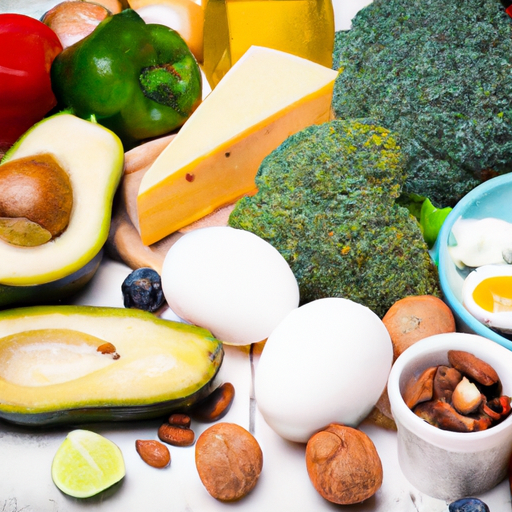
Balancing ethics with personal health goals
Considering the ethical implications of a vegetarian or vegan Keto diet
The decision to follow a vegetarian or vegan Keto diet extends beyond personal health goals and often involves ethical considerations. Many individuals choose to eliminate or reduce animal products from their diet due to concerns for animal welfare, environmental sustainability, or personal beliefs. Balancing these ethical implications with the desire to follow a Keto diet requires thoughtful consideration and personal reflection. It may involve sourcing organic, sustainable, and cruelty-free animal products or exploring plant-based alternatives that align closer with personal values.
Finding ways to prioritize animal welfare and environmental concerns
For those who are concerned about animal welfare and environmental sustainability, there are ways to prioritize these values while following a Keto diet. Opting for ethically sourced animal products, supporting local farmers and producers, and focusing on organic or sustainable options can help align personal values with dietary choices. Additionally, incorporating more plant-based meals, reducing food waste, and choosing environmentally friendly packaging and cooking methods can contribute to a more sustainable and compassionate lifestyle.
Making informed choices for a sustainable and compassionate lifestyle
Ultimately, the decision to follow a vegetarian or vegan Keto diet is highly personal and can be influenced by a variety of factors, including personal health goals, ethical considerations, and environmental concerns. It is essential to stay informed, listen to your body, and prioritize overall well-being when making dietary choices. By seeking knowledge, consulting with healthcare professionals, and engaging in ongoing self-reflection, individuals can create a sustainable and compassionate lifestyle that aligns with their values.
Conclusion
In conclusion, vegetarians and vegans can successfully follow a Keto diet by making informed choices, finding alternative protein sources, and incorporating plant-based fats into their meals. While there may be challenges to overcome and special considerations to keep in mind, it is possible to achieve and maintain ketosis while adhering to a vegetarian or vegan lifestyle. By planning meals carefully, exploring creative recipes, and considering supplementation under guidance, vegetarians and vegans can thrive on a Keto diet. It is essential to listen to your body, prioritize nutritional needs, and find a balance that works for you. Whether motivated by personal health goals, ethical concerns, or environmental sustainability, the possibility of successfully following a Keto diet as a vegetarian or vegan exists for those willing to put in the effort and commitment.
